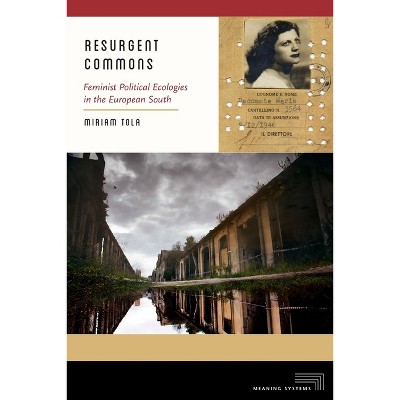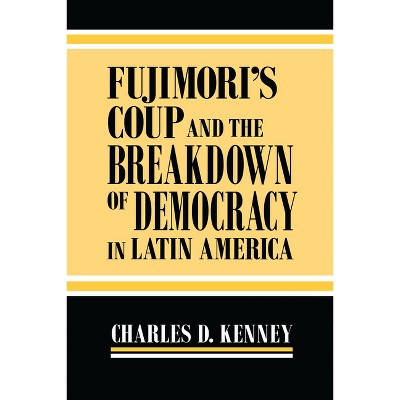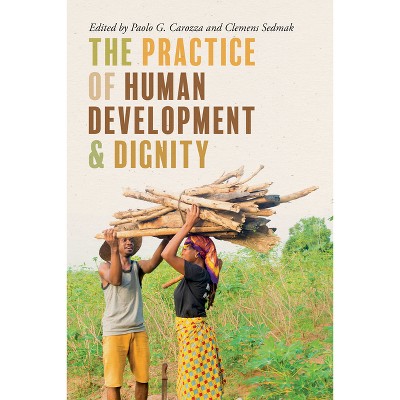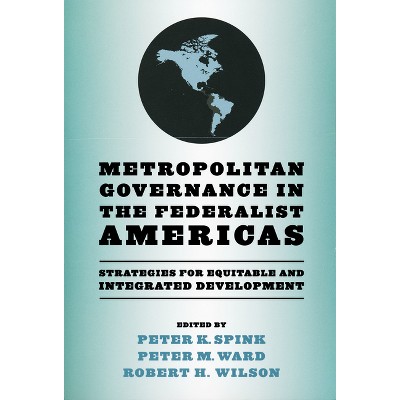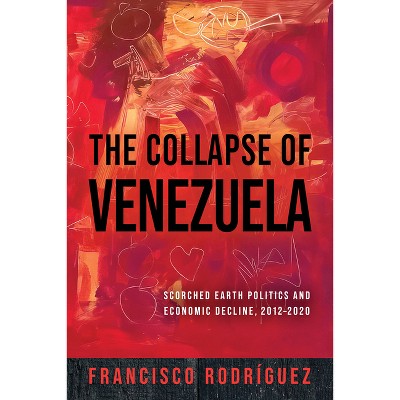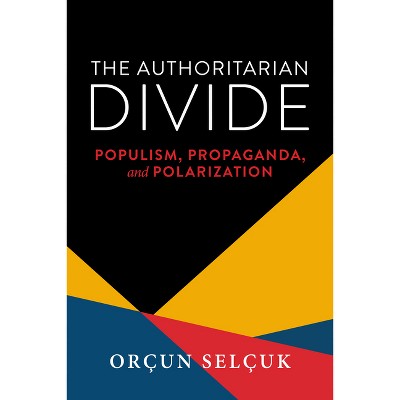Sponsored

Power and Regionalism in Latin America - (Kellogg Institute Democracy and Development) by Laura Gómez-Mera (Hardcover)
In Stock
Sponsored
About this item
Highlights
- In Power and Regionalism in Latin America: The Politics of MERCOSUR, Laura Gómez-Mera examines the erratic patterns of regional economic cooperation in the Southern Common Market (MERCOSUR), a political-economic agreement among Argentina, Brazil, Paraguay, Uruguay, and, recently, Venezuela that comprises the world's fourth-largest regional trade bloc.
- About the Author: Laura Gómez-Mera is assistant professor in the Department of International Studies at the University of Miami.
- 304 Pages
- Medical, Ethics
- Series Name: Kellogg Institute Democracy and Development
Description
About the Book
This book uses a sophisticated model to explain the apparently erratic pattern of conflict and cooperation in the Southern Common Market (MERCOSUR).
Book Synopsis
In Power and Regionalism in Latin America: The Politics of MERCOSUR, Laura Gómez-Mera examines the erratic patterns of regional economic cooperation in the Southern Common Market (MERCOSUR), a political-economic agreement among Argentina, Brazil, Paraguay, Uruguay, and, recently, Venezuela that comprises the world's fourth-largest regional trade bloc. Despite a promising start in the early 1990s, MERCOSUR has had a tumultuous and conflict-ridden history. Yet it has survived, expanding in membership and institutional scope. What explains its survival, given a seemingly contradictory mix of conflict and cooperation?
Through detailed empirical analyses of several key trade disputes between the bloc's two main partners, Argentina and Brazil, Gómez-Mera proposes an explanation that emphasizes the tension between and interplay of two sets of factors: power asymmetries within and beyond the region, and domestic-level politics. Member states share a common interest in preserving MERCOSUR as a vehicle for increasing the region's leverage in external negotiations. Gómez-Mera argues that while external vulnerability and overlapping power asymmetries have provided strong and consistent incentives for regional cooperation in the Southern Cone, the impact of these systemic forces on regional outcomes also has been crucially mediated by domestic political dynamics in the bloc's two main partners, Argentina and Brazil. Contrary to conventional wisdom, however, the unequal distribution of power within the bloc has had a positive effect on the sustainability of cooperation. Despite Brazil's reluctance to adopt a more active leadership role in the process of integration, its offensive strategic interests in the region have contributed to the durability of institutionalized collaboration. However, as Gómez-Mera demonstrates, the tension between Brazil's global and regional power aspirations has also added significantly to the bloc's ineffectiveness.
Review Quotes
"A careful theoretical scheme includes domestic, bureaucratic, and external bloc forces to explain the evolution of this [MERCOSUR] regional integration bloc. . . . The multidimensional theoretical approach does clearly get at the complexity of the MERCOSUR case, in which domestic actors are influential but the state, albeit often divided, remains central in responding to domestic and international pressures." --Choice
"Gómez-Mera offers an extremely valuable contribution to our understanding of why the globe is fragmenting into regional blocs--and the implications for the future of international relations theory and practice. By masterfully integrating domestic interest groups and institutions, she brings life to the formation of foreign policy. Equally valuable are the bright lights she shines on the dangerously underdeveloped study of Brazilian foreign policy and interests." --Richard Feinberg, University of California, San Diego
"In a very engaging and accessible manner, Laura Gómez-Mera has successfully applied the standing theories of international relations to the case of MERCOSUR. She has woven together international/systemic and domestic theories as these pertain to the role and interaction of Brazil and Argentina, the two main middle powers in MERCOSUR. Through this analysis of regional integration and interstate conflict and cooperation, Gómez-Mera thoroughly covers all the necessary methodological bases while also bringing her subject to life. The sectoral case studies she provides reflect a tremendous amount of original fieldwork; those, combined with a sophisticated conceptual framework, comprise a valuable contribution to the field." --Carol Wise, University of Southern California
"This study provides a theoretically sophisticated and empirically rich analysis of the complex links between regional cooperation and inequalities of power. Its carefully researched re-construction of the patterns of conflict and cooperation within MERCOSUR represents a valuable addition to our understanding of regional dynamics within South America and their connection with domestic politics. It also significantly advances the debate on a crucial broader question in the study of contemporary global politics and political economy: the relationship between regionalism and a world of emerging regional powers." --Andrew Hurrell, University of Oxford
"Power and Regionalism in Latin America uses a sophisticated model to explain the apparently erratic pattern of conflict and cooperation in Mercosur. Gomez Mera's contribution is unique in that she creatively combines IR theory with the International Political Economy literature on regionalism and regional trade agreements. The result is a path-breaking study that sheds light on the specificity of regionalism in South America." --Mario E. Carranza, Texas A&M University-Kingsville
"Power and Regionalism in Latin America adds depth and breadth to scholarly reflections on Mercosur and more widely on the drivers of regional cooperation. It carefully distinguishes between survival and success of integration. The interplay of systemic forces, especially regional power configurations, and domestic interests, especially state agencies' preferences, will determine whether Mercosur will be a case of one or the other. For now, Gomez-Mera provides a convincing explanation of what is perhaps the only consistency in Mercosur's trajectory: its inconsistency." --Bulletin of Latin American Research
"This is a solid book explaining the apparently erratic pattern of conflict and cooperation in the South American integration bloc, MERCOSUR. A careful theoretical scheme includes domestic, bureaucratic, and external bloc forces to explain the evolution of this regional integration bloc . . . [while] adding specificity to the interaction between regionalism and globalization in a developing region." --Choice
About the Author
Laura Gómez-Mera is assistant professor in the Department of International Studies at the University of Miami.
Shipping details
Return details
Trending Non-Fiction






